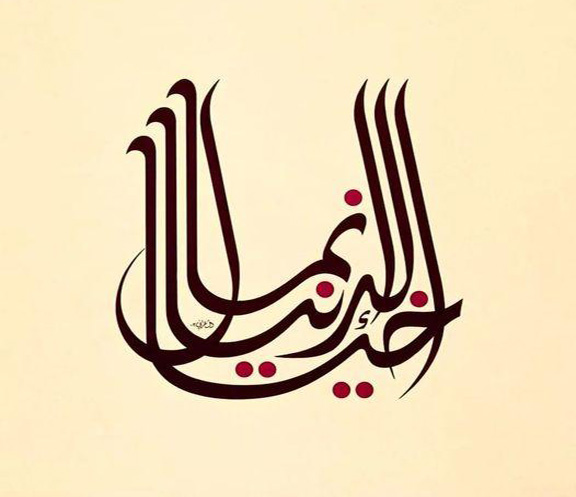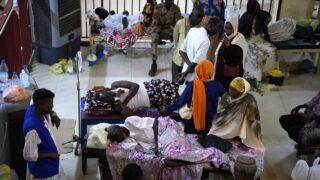" This file was produced as part of the activities of the Independent Media Network on the Arab World. This regional cooperation brings together Maghreb Emergent, Assafir Al-Arabi, Mada Masr, Babelmed, Mashallah News, Nawaat, 7iber and Orient XXI."
Léonard Sompairac*
According to the World Health Organisation (WHO), one person in eight has a mental health problem, especially one of the anxious or depressive type[1]. This situation has worsened since 2020 and the Covid 19 pandemic. But if the whole world is crazy, isn't it normal that we ourselves should be too? While there are psychological pathologies of which the neurobiological and neurodevelopmental origin is well-established, many psychological or psychiatric problems have familial, socio-economic or political causes. These environmental determinations may also aggravate pre-existing disorders.
In the Arab world, the proportion of these is higher than elsewhere[2], with an average of 29% depressives, especially among the Iraqis, Tunisians and Palestinians interviewed. Much less among Moroccans and Algerians (20%). Not to mention the fact that exposure to images of the on-going war of extermination carried out in the Gaza strip since the 7 0ctober by the Israeli army has had even more psychological impact as was revealed by a Tunisian study[3], especially through the accumulation of feelings of anger and injustice.
It Is Not Just About Gaza and Palestine
18-01-2025
The region abounds in causes for the appearance and aggravation of mental disorders, and these are largely of a political nature. A certain number of countries remain the prey of unending conflicts (Palestine, Syria, Yemen, Iraq) which traumatised whole populations from one generation to the next. This also holds true for Lebanon and Algeria, after periods of civil war and for lack of the adoption of reconciliation policies. Massive population displacements, as in Sudan, also increase the risk of mental disorders.
In view of the increased authoritarianism since the Arab revolts of 2011, political disillusionment, as in Egypt and Tunisia has morphed into apathy and a feeling of powerlessness which has worsened anxio-depressive disorders and which a deterioration of the economic situation prevents from being treated satisfactorily. In Egypt the "currency depression" is just as crazy (in just 15 years the value of the Egyptian pound fell from 8 on the euro to 50!) and acts as an additional factor of stress on the population. Not to speak of the demographic growth and skyrocketing urbanisation which overburden existing health-care infrastructures.
While individualism remains less pronounced in the region than elsewhere, thanks to the firm implantation of familial ties and group solidarity. But the massive use of the social networks in all Arab countries is furthering the virtualisation of both the world and people's behaviours and inevitably constitutes a threat to mental health. Women's place in society is another factor of fragilization, especially on account of the dominant patriarchal system as was demonstrated by psychiatrist Nawal El Saadawi who declared in an interview "The ordinary Egyptian woman is the slave of men, the slave of society, of religion and of the political-economic system which weighs heavily on us all." This distress can result in an increase in the frequency of suicidal behaviours, as in Iraq where the suicide rate has doubled in five years, especially because of psychological disorders. The consumption of psychotropics is also on the rise, as in Tunisia, where it is difficult to keep track of dosages and duration of treatments, which may constitute a danger in itself.
So long as the infrastructures and the quality of care remain deficient in the region, despite important shades of difference, mental health, as everywhere else, will remain the poor cousin of medicine. Already in 2012, a study carried out in spite of the difficulties in accessing statistics, revealed the many inadequacies in terms of legislation, available hospital beds and trained specialists[4]. This is also what is to be concluded from our own dossier, especially as concerns the overall care policies, the difficulties of accessing treatments and the geographical disparities. And this in spite of WHO's recommendations, i.e. that every dollar invested in the treatment of mental disorders yields five via the improvement of health nationwide and the gains in productivity.
This regional assessment, worsened by the continual departure of specialists for foreign shores, foreshadows the development of alternative medications, either religious beliefs or techniques of personal development, a tendency which widens the gap between patients and the medical establishment. Yet while, like Michel Foucault, we understand the evolution and perception of mental illness in and by society, and how the institutional power of doctors, by their medical knowledge, creates the "mentally ill", today we can also grasp the extent to which this remains taboo, particularly in the Arab world, in both the public and private spheres. In 2020, nearly 50% of young Arabs declared that in their country a dim view was taken of anyone who had recourse to mental health care[5].
Such was not always the case. From the founding of the first Bimaristan in Damascus at the beginning of the 8th century AD, to Abu Ali al-Husayn ibn Abd-Allah Ibn Siha (Avicenne) and his interest in mental health, in the form of a classification of various symptoms, by way of Abu Bakr Muhammad ibn Zakariyya al-razi (Rhazes) and his book Spiritual Medicine, the mentally ill were taken into consideration in the region. The lasting popularity of the love fable, Majnoun[6] and Leila, probably meant to be anti-Islamic, is there to remind us of this.
The issue of mental health and its representation, but above all of its treatment, is an eminently political one. As discussed by Hamza Hamouchene in his essay "Fanon or the psychology of oppression and liberation", the latter's commitment to social change went hand in hand with the psychological liberation of the individual. And his "psychology of liberation prioritized the empowerment of the oppressed through organised social activities, with the aim of recovering the individual and collective histories perturbed and inhibited by oppression and colonialism". In other words, in a political context as hectic as ours, caring for psychiatric disorders should associate individual clinical treatments with broader policies which recognize and target the collective social and political factors behind these individual symptoms.
It is because these observations still seem so pertinent that the network of independent media on the Arab world decided to devote a series of articles to the subject, but also because of the difficulties involved in accessing statistics and because the media treatment of the subject is so poor, considering its political and social importance.
In his article for Asafir Al-Arabi entitled "Mental Health in Iraq is growing steadily worse", Mizar Kemal points out that the funds devoted to mental health in Iraq are less than 2% of the total health care budget and that there are only three psychiatric hospitals for a population of 43 million. In a country which has experienced four major wars in the last four decades, and between these an embargo and several civil wars (including a religious war in 2006-2007) , the psychological impact has been disastrous. Among the consequences have been a rise in the number of suicides and in the consumption of psychotropics (Metamphetamine and Captagon). "The stigmatisation and deliberate neglect of mental disorders, both by the State and the society as a whole, have greatly contributed to a permanent shortage of medical personnel trained to deal with mental patients," which has resulted de facto in an increase of the recourse to the alternative practices of so-called "Sheiks".
In their article for Babelmed, "Treating mental illness in Algeria", Ghada Hamrouch and Ghania Khelifa, despite the paucity of available statistics, discuss the issue of the decline of mental health in Algeria. They refer to " a population caught between two traumatic events, the war of liberation on the one hand and a civil war on the other." Despite a number of specialists and care facilities which they deem "acceptable", they point an accusing finger at inadequacies in the quality of care, in the access to treatment and at regional disparities. Through a multidisciplinary approach "it is imperative to promote psychotherapies and to create structures facilitating patients' post-cure transitions as close as possible to their daily environment." All the more so as mental illness is still treated with charms, incantations, and ruqya sessions, which constitute a highly lucrative system.
In her article for Nawaat, "Anxio-depressive disorders: Tunisians at the end of their tether", Rihab Boukhayatia insists on the fact that these latter have grown significantly more frequent. In terms of "ill-being", Tunisia occupies the 115th position out of 143 countries, with a scale of indicators which includes the feeling of being free, the absence of corruption, the level of earnings and social support. The author also deals with the harmful influence of the social networks and the growth of the happiness industry. She also invokes the evolution of drug-use since 2013 "as a form of self-medication", as well as the consumption of anxiolytics, especially among teenage girls. "In the past, parents focused mainly on the problems of their private lives. Now they refer often to their stressful environment: 'instability, insecurity, their inability to perceive any future prospects" Even though people are consulting specialists for mood disorders more frequently than before, the stigmatisations and the things left unsaid remain.
In her article for Mashallah News "The struggle for mental health care in a context of multiple crises in Lebanon", Layla Yammine makes a point of showing the impact of poverty - which tripled in six years according to the World Bank - on mental disorders and their treatment. Their high cost, in a largely privatized medical system, means that they are not available to everyone. Despite the national strategies designed to modernise the sector, these suffer from the budgetary restrictions: "in 2020, only 5% of all governmental health expenditures went to mental health care." Expatriation of specialists, self-medication, stigmatisation and taboo.... all coincide with traumatic events. After the explosion in Beirut harbour on 4 August 2020, today it is Israel's war on Gaza and its repercussions in South-Lebanon which have heightened feelings of fear, anguish and anxiety in the Lebanese population.
In his article for OrientXXI "Mental Health in Morocco, a road strewn with stumbling blocks and atrocities", Mohammed Al-Nejjari reminds us that nearly half the Moroccan population is thought to suffer from psychological disorders. The lack of public policies, of adequate reception capacities and treatment structures make it impossible to cope with the problem, all the more so as "there is less than one specialist for 100,000 inhabitants." The lack of availability of care gives rise to bribery and nepotism and many patients turn to the lucrative market of alternative practices. Most frequent of these are the visits to sanctuaries such as the Bouya Omar mausoleum, "familiarly known as Guantanamo", shut down in 2015, and ruqya sessions. Or the sufferers may find themselves in prison! For lack of any awareness-raising campaigns, many people are duped or blackmailed, especially for sexual reasons, making them even more distressed and increasing the risk of suicide.
Mahmoud Bashir, in his article for Mada Masr, reveals the mental health problems in the Gaza strip, made much worse by the on-going war, in addition to the penury of life-saving staples (food, water, shelter, medicaments). He also analyses the massive destructions wreaked on medical infrastructures, when even before 7 October psychological treatment was already limited by the lack of care facilities and an unfavorable environment.
In his article for 7iber, Abeer Juan stresses the dominant role of medicaments in psychiatric treatments, to the detriment of other therapeutic approaches. There are "several structural reasons for this, linked to the lack of specialized medical personnel, the lack of public financing, the weight of administrative tasks and a general lack of consideration for mental health." The determinant factors of a political, economic and social nature are also neglected. With 20% of the Jordanian population thought to be suffering from depression and anxiety, these other approaches are not always available in the public sector and are very expensive in the private one.
*Member of the editorial board of Orient XXI , and coordinator of the “Network of independent medias about the Arab world”.
-Translated from French by Noël Burch
- https://www.who.int/news-room/fact-sheets/detail/mental-disorders. ↑
- https://www.arabbarometer.org/2020/07/fact-sheet-prevalence-of-mental-health-problems-in-mena/. ↑
- https://nawaat.org/2023/12/14/gaza-a-lecran-impact-psychotraumatique-de-la-couverture-mediatique-de-la-guerre-sur-les-tunisiens/. ↑
- https://www.ncbi.nlm.nih.gov/pmc/articles/PMC3266748/. ↑
- https://arabyouthsurvey.com/en/young-arabs-say-getting-quality-mental-healthcare-is-difficult. ↑
- Which means crazy in Arabic. ↑





